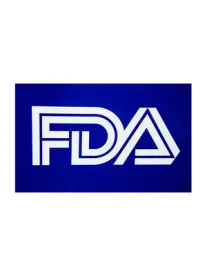Dr. Reddy’s Laboratories LTD is India’s second largest pharmaceutical company. The company manufactures many of the generic drugs sold in the U.S. In recent years, Dr. Reddy’s has also been performing contract manufacturing for brand name drugs. On November 5th, the FDA issued a warning letter for three of Dr. Reddy’s facilities. The regulatory action follows findings of inadequate quality controls.
Today 80% to 85% of prescription drugs sold in the United States are imported. Many of those imports are from India and China, two countries that have been plagued with quality issues.
Warning letters from the FDA are very serious. Until the FDA says otherwise, Dr Reddy’s will not receive approvals to import new drugs from the three named facilities. In the absence of immediate remediation measures, the warning also allows the FDA to ban further imports from the company. Typically, it takes two years or more to reacquire FDA approval.
The facilities are located in Srikakulam, Duvvada and Miryalaguda.
Previously, Dr Reddy’s received a warning letter from the FDA in June of 2011. That letter concerned current good manufacturing practices (cGMP) violations at the company’s facility in Morelos, Mexico.
Although the FDA has not yet released the text of the warning letter, we know that the Srikakulam facility received facility received an FDA inspection report following a November 2014 inspection. Called a Form 483, the FDA issues these forms to drug companies when they find significant problems that could cause drugs to become adulterated or harmful.
Typically, drug manufacturers are given a time period to respond to the inspection report before the issuance of a warning letter. Dr Reddy’s has admitted that the three facilities in question were inspected in November of 2014 as well as January and February of 2015.
Following the November Form 483 inspection report, Dr Reddy’s claimed the nine violations observed were mostly “procedural.” A company spokesperson claimed there was “no implication on manufacturing.” Clearly, that statement was erroneous.
Now that the violations have escalated to the level of a warning letter, Dr Reddy’s will have 15 days to respond. That response will not allow the company to begin the approval process for new products, however.
Indian drug manufacturing has come under fire in recent years. Earlier this year the Indian government and pharmaceutical manufacturers issued a blueprint for improving quality issues.
Persons working within Indian drug companies are eligible for awards under the U.S. False Claims Act. Several years ago an Indian American executive of Ranbaxy Laboratories was awarded $48 million after becoming a whistleblower and filing a False Claims Act complaint. The Act allows people with inside information to receive an award of up to 30% of whatever the government collects from the wrongdoer.
Whistleblowers are the best line of defense against adulterated drugs entering the marketplace. Despite the best efforts of the FDA, inspectors are lucky to visit manufacturing facilities every two years.




 />i
/>i
